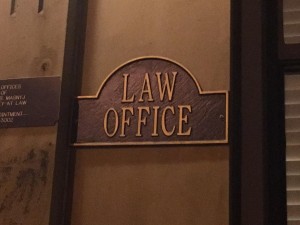Alternative-Fact April: Debunking 4 Stereotypes About Self-Employed Attorneys Seeking Employment
Employers who refuse to consider self-employed lawyers are missing out on great talent.
 It is little surprise that self-employed attorneys, including solo practitioners, startup small-firm lawyers, and other up-and-comers have a hard time transitioning to established firms. Prospective employers favor those who are already employed at a firm they know about.
It is little surprise that self-employed attorneys, including solo practitioners, startup small-firm lawyers, and other up-and-comers have a hard time transitioning to established firms. Prospective employers favor those who are already employed at a firm they know about.
Employers and recruiters tend to give stricter scrutiny when evaluating self-employed applicants mainly because they don’t know them. And when we don’t know people, we tend to turn to stereotypes.
So for this week’s Alternative-Fact April column, let’s look at and debunk some common stereotypes people have about self-employed lawyers seeking employment.

Navigating Financial Success by Avoiding Common Pitfalls and Maximizing Firm Performance
- They can’t handle authority. Employers are led to believe that former business owners who are used to calling the shots will eventually resent being told what to do. They think the employee will tolerate it for a short time and then go back to being a self-employed attorney again.First of all, as any solo practitioner knows, owning a business does NOT mean we get to do whatever we want, especially at the startup stage. We have to answer to clients and judges, some of whom can at times be quite unreasonable.Also, there are times when self-employed attorneys have to take orders. Some attorneys set up their own practices out of necessity and did not want to be entrepreneurs. Since they lack experience, they co-counsel with more experienced colleagues who play a supervisory role. If they work well together in one case, they are likely to work together again.
In sum, self-employed attorneys seeking employment know they will have to answer to someone else. They may offer constructive suggestions based on their experiences, but the boss has the final word.
- They won’t be able to adjust to the firm’s lifestyle. Solo practitioners are known for being accustomed to flexible hours. We can work from home, on the beach, or on a hiking trail. If we want to take a nap, the bed is often right across from the desk. So employers have been told that former solos are a flight risk because they will not like or eventually get tired of working a fixed schedule or meeting billable-hour requirements.This assumption is also nonsense. Self-employed attorneys seeking to transition to a firm will know that they will be expected to abide by the hiring firm’s attendance rules.Also, even though solo attorneys can set their own hours, it does not mean they don’t want to work long hours. They just don’t work in a traditional office during normal business hours. And you are going to look down on afternoon naps? We take them because we work late when no one is calling, emailing, or texting us.
In sum, self-employed attorneys adapted to their situation. They will adapt to the firm’s culture.
- It’s hard to determine how the candidate has progressed. Employers and recruiters want to see promotional progress. If you are fortunate enough to have worked for a brand-name firm and have been there for some time, that progress is automatically assumed regardless of what you actually did there.HR people claim that it is hard to gauge how self-employed attorneys have progressed, especially if they don’t have experience with firms they know.It seems that from an HR perspective, any deviation from the straight-line employment career track is looked down upon. Self-employed attorneys seeking employment will have a harder time convincing employers that their experience is just as good as the already employed candidate. Even if both did the same type of work.
Unfortunately, I have no all-purpose response to this assumption. No one can compare a solo practitioner’s own experience with that of someone employed in Firm ABC or Firm 123. I can only suggest that it is very short-sighted if an employer automatically looks down on a self-employed attorney’s experience. You will be missing out on great talent.
- Their practices are failing. Finally, employers think that self-employed attorneys are looking for a job because their practice must be failing. That seems to make sense. Why leave a profitable practice where you have full control over everything? To make things worse, some of them might also have baggage, like substantial business debt or maybe even a bar complaint or a malpractice lawsuit.But there are many attorneys who have sustainable practices who want to leave for different reasons. Some don’t enjoy the work but did what they had to do to survive. Others enjoy the work but think they can do better working for an established firm. There may also be family or relocation issues.
In the final analysis, self-employed attorneys took a different path to develop their career. But those who want to give up their practice to work for someone else know what they are getting themselves into, including what they are giving up.
Next week, I will write about the benefits that self-employed attorneys bring to an existing firm.
Sponsored

Is The Future Of Law Distributed? Lessons From The Tech Adoption Curve

Legal AI: 3 Steps Law Firms Should Take Now

The Business Case For AI At Your Law Firm


Is The Future Of Law Distributed? Lessons From The Tech Adoption Curve
Shannon Achimalbe was a former solo practitioner for five years before deciding to sell out and get back on the corporate ladder. Shannon can be reached by email at sachimalbe@excite.com and via Twitter: @ShanonAchimalbe.
Sponsored

Navigating Financial Success by Avoiding Common Pitfalls and Maximizing Firm Performance








